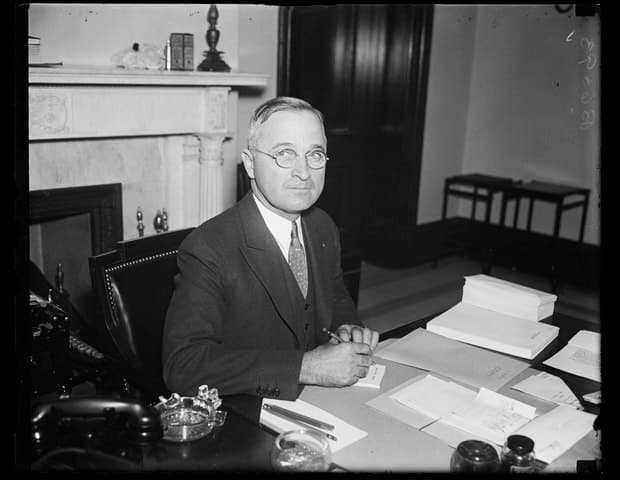Pick Your President and the Biography Is Sure To Be Available
New biographies of Lincoln, Obama, and Truman and the vagaries of presidential biography.

The appetite for presidential biographies is insatiable. It does not have to be Washington, Lincoln, or Roosevelt. Years ago, I walked into an airport bookstore that was featuring, right in front, Amity Shlaes’s “Coolidge” (2013), a lively, positively revisionist account of not so silent Cal.
Readers keep buying, insisting who is president matters even though historians declared Carlyle’s great man of history theory dead decades ago.
A biographer has to be careful, though. Readers like their presidential biographies neat. No departures from the genre’s decorum — such as Edmund Morris’s “Dutch: A Memoir of Ronald Reagan” (2011), which includes invented characters and footnotes, or Nigel Hamilton’s picaresque “JFK: Reckless Youth” (1992), which brought down on him the wrath of the House of Kennedy and made it impossible for Mr. Hamilton to continue his work.
With Mr. Hamilton banished from the archives, Robert Dallek gained access and produced “An Unfinished Life: John F. Kennedy, 1917-1963” (2003), hailed by those who failed to acknowledge that Mr. Dallek’s “revelations,” presented in careful, anodyne prose, had already been scooped by Mr. Hamilton. The latter’s spirit, however, remains alive in Alexis Coe’s irreverent and witty “You Never Forget Your First: A Biography of George Washington” (2020).
The current crop of presidential biographies returns to conventional form while still managing some twists. In “The Black President: Hope and Fury in the Age of Obama” (2021), Claude A Clegg III provides a penetrating look at how a diverse African-American community divided on the nature of the Obama presidency.
This title nearly says it all: “The Trials of Harry S. Truman: The Extraordinary Presidency of an Ordinary Man, 1945-1953.” Author Jeffrey Frank adopts Eleanor Roosevelt’s view that with each key decision — and Truman had to make many, including dropping the atomic bomb, desegregating the army, implementing the Marshall Plan, fighting communism in Korea and contending with the Cold War — Truman grew in stature.
I like the way Mr. Frank handles his prose: “It’s most useful to know just a few things about Truman’s childhood and young manhood.” If you want to know what is most useful, okay; if you have already read a Truman biography, okay — he’s not going to waste your time. One of those “few things” was that from a very early age Truman was an avid reader.
Truman said that by the age of 13 he had read “all the books in his home town library including the International and Britanica [sic] Encyclopedia.” Mr. Frank scoffs, but whatever the literal truth, it is clear Truman did bring to his decisions a well-formed view of history that went back as far as the Greeks and Romans.
Truman did not go to college. He learned from books and on the job. He could be hasty, relying on his intuition, and a poor judge of character, Mr. Frank shows, yet Truman could course correct, and perhaps that early reading should be given more credit for providing Truman with a sound moral and political compass.
Mr. Frank explores Truman’s “emotional connection” with Lincoln’s efforts to treat the South fairly and compassionately, which is the thrust of John Avlon’s “Lincoln and the Fight For Peace” (2022). Mr. Avlon argues that even though Lincoln died before his vision of Reconstruction as a form of reconciliation could be fulfilled, his example continued to inspire American leaders like General Lucius Clay, who superintended American occupation of Germany.
Another way to look at who becomes president is through what might be called a sub-genre of those who saw themselves destined for the highest office but did not make it and so are shunted aside in history. In “Salmon P. Chase: Lincoln’s Vital Rival,” Walter Stahr rehabilitates Lincoln’s brilliant treasury secretary and later chief justice of the Supreme Court.
An early opponent of slavery, Chase was unable to secure the presidential nomination in a new Republican Party that was looking for a moderate. Yet Chase suggested and implemented a good many of Lincoln’s successful policies. One sentence from Mr. Avlon’s book reveals why Chase never became president: He “groused that Lincoln was ‘not earnest enough, not anti-slavery enough, not radical enough.’”
Mr. Stahr, I suspect, would agree with Mr. Avlon, even while contending that the Lincoln we know and admire would not have been possible without his “vital rival.”
Mr. Rollyson is the author of “American Biography” and is at work on a book about presidential biography.

